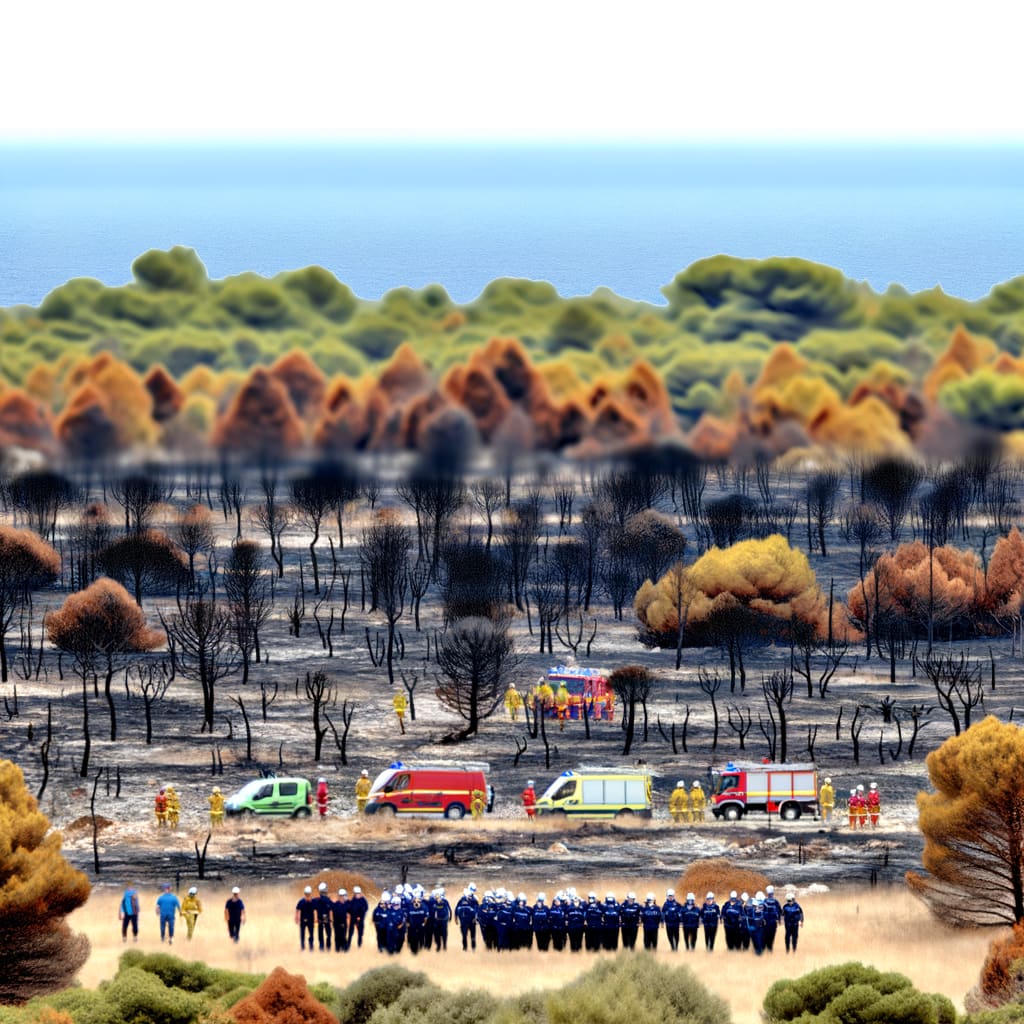Spain and Portugal Battle Unprecedented Wildfires Amid Severe Heatwaves
Spain and Portugal are grappling with deadly wildfires, fueled by extreme temperatures and drought, resulting in the deployment of nearly 2,000 troops and the mobilization of additional resources from across Europe. The wildfires, which have already claimed several lives, coincide with an intense heatwave that has seen temperatures in parts of Spain soar above 40 degrees Celsius.
Background
The Iberian Peninsula has become a flashpoint for wildfires, with Spain's Prime Minister Pedro Sánchez linking the crisis to climate change. We need a pact on climate,
he said, as reported by La Repubblica. The country has witnessed extreme temperatures across most regions, with the Spanish weather agency, Aemet, recording a high of 45.8C in Cádiz and warning of very high or extreme fire danger
in much of the country.
In Portugal, the situation is equally dire, with Al Jazeera reporting that emergency services are under strain due to the worst
fires in years. The wildfires have caused significant damage, with over 340,000 acres burned in Spain alone, according to ANSA.
Key Developments
The Spanish government has deployed 1,400 troops to combat the wildfires, with an additional 500 soldiers sent as reinforcements, according to the South China Morning Post. The severity of the crisis has also prompted the activation of European aid, as reported by Le Monde, with firefighting aircraft reinforcements from other European countries en route to the affected areas.
Meanwhile, in Portugal, the wildfires have been described as like a hurricane,
with thousands of firefighters, military personnel, and water-bombing aircraft battling the blazes, as cited by the South China Morning Post.
Despite the escalating situation, residents in the affected areas are looking towards the future. Inhabitants of villages in Aude, where nearly 17,000 hectares of vegetation were burned, are expressing hopes that life will regain its rights,
as reported by Le Monde.
Implications and Reactions
The fires have exposed the vulnerability of the region to the impacts of climate change, with extreme weather conditions exacerbating the situation. The New York Times reported that the dangerously hot weather is making it increasingly difficult for firefighters to quell the flames.
The wildfires have also claimed multiple lives. The death toll from the wildfires across Spain and Portugal has risen to six, according to the South China Morning Post, with two firefighters among the casualties, as reported by the Japan Times.
Spain's Prime Minister has emphasized the need for collective action to address the climate crisis, calling for administrators and researchers to contribute to the solution.
Current Status
The wildfires, particularly in the northwestern Galicia region of Spain and across Portugal, continue to pose significant challenges. As the battle against the flames continues, the Iberian Peninsula awaits additional reinforcements and resources from across Europe. The region faces an uphill task in not only extinguishing the current wildfires but also in implementing effective strategies to mitigate the impact of future climate-related disasters.

